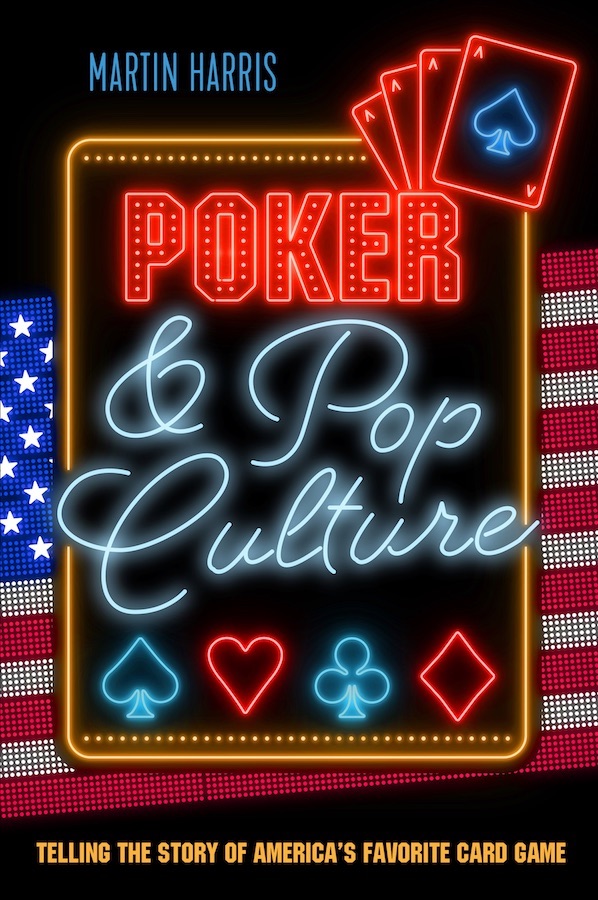On Sklansky, Malmuth, and Allegations of Plagiarism
 Background
BackgroundSomewhere along the way David Sklansky and Mason Malmuth began inserting “A Note on the English” among the prefatory materials of their books. I know it appears at the beginning of Hold ’em Poker for Advanced Players and Seven Card Stud for Advanced Players -- it might turn up in other books as well. The note concerns the issue of style. After talking a little bit about how they compose their books (via tape recorded conversations later transcribed), Sklansky and Malmuth admit that what results may not read as smoothly as one would hope.
“But the purpose of this book is not to get an ‘A’ from our English teacher,” the note goes on to say (in Hold ’em Poker for Advanced Players). “Rather it is to show you how to make a lot of money in all but the toughest hold ’em games. So if we end a sentence with a preposition or use a few too many words or even introduce a new subject in a slightly inappropriate place, you can take solace from the fact that you can buy lots more books by Hemingway with the money we make you.”
I’ve never been a big fan of utterly dismissing the importance of style like this. Anyone who tries to communicate via the written word knows that how one says something oftentimes can be as important as what one says. Obviously Sklansky and Malmuth had been faulted by someone somewhere for their style and so decided to try to head off that particular criticism before it arose.
Frankly -- as someone who has read several books by either Sklansky, Malmuth, or both -- I’ve never been that bothered by their style. All of their books (to me) seem well organized and well written (if a little unexciting at times). In other words, not only do I tend to disagree with the disclaimer’s suggestion that style is unimportant, I wouldn’t think these two should feel obligated to say such a thing about their books.
In any event, I was reminded of the pair’s attempt to dismiss the importance of style earlier in the week when I read a post over at Kick Ass Poker reporting a recent flare-up over on 2+2 that involved something Malmuth and Sklansky wrote. Most specifically, how they wrote it.
Allegation and Response
For those who missed it, earlier this month a poster on 2+2 began a thread titled “plagiarism? looks like it to me” in which he quoted a passage from Malmuth and Sklansky’s Seven Card Stud for Advanced Players (first published in 1989, I believe) that closely resembles a passage in Chip Reese’s stud section of the original Super/System (first published in 1978). Don’t bother looking for the original thread anymore. It’s vanished.
Both of the passages in question concern the concept of raising with a so-so hand on fourth street when heads-up to try and get a free card on fifth while also anticipating the possiblity that you might get a big card on fifth and thus have to bet first (potentially nullifying the ploy to get checked to on fifth). The idea here is that you don’t want to have to bet first on fifth in this situation unless the card you catch is giving you some more hand-building possibilities (like making a big straight).
In Super/System, Reese writes “Suppose you have

 up and the
up and the 
 in the hole. Your opponent started with a King-up and caught a Baby on Fourth St. Now, if you catch a King or an Ace, you’ll be high but it won’t wreck your play because you’ll have a chance to make a straight.”
in the hole. Your opponent started with a King-up and caught a Baby on Fourth St. Now, if you catch a King or an Ace, you’ll be high but it won’t wreck your play because you’ll have a chance to make a straight.”In Seven Card Stud for Advanced Players, Sklansky and Malmuth write “Another example. You have (

 )
)
 and your opponent started with a king up and caught a baby on fourth street. Raise if he bets. Notice that if you catch an ace or a king, you have improved your hand since you now have straight potential.”
and your opponent started with a king up and caught a baby on fourth street. Raise if he bets. Notice that if you catch an ace or a king, you have improved your hand since you now have straight potential.”(Incidentally, what I’m showing you here is how the original poster quoted the two passages. I’m noticing in Super/System a couple of small, superficial differences in the quote. I don’t have a copy of Seven Card Stud here to compare.)
You get the idea. Same concept, expressed in nearly the same terms, and even using the same example. Coincidence? Probably not.
As Haley explains over on Kick Ass Poker, the initial response to the accusation from Malmuth was a flat denial. Additionally, the poster (and some others, apparently) were banned. As I mentioned, the original thread was removed, although a few others have popped up in which one can find the original post being quoted and discussed. Among those, you might start with this thread that discusses the original thread (in “Books and Publications”) being locked (and later removed).
Eventually Sklansky ended up addressing the matter, and in a Dec. 10th post admits that in fact the passage in question very likely resulted from the pair’s technique of recording conversations and then transcribing them. As Sklansky explains, he was giving Malmuth lessons about stud and the pair was tape recording them, not necessarily even thinking about writing a book until later. Sklansky admits one thing “I do remember well was that I had uncharacteristically learned something from someone else’s book,” namely Super/System, and that as “I was giving Mason lessons I made sure to include that concept.”
Somewhere along the way, Sklansky explains, giving credit to Reese for the idea/example was lost in the shuffle. “Perhaps I got the book and read Mason the example,” says Sklansky. “In any case by the time Mason got around to transcribing his tape he forgot or didn’t realize that this one example came straight from Doyle’s book. And when I checked the manuscript, I wouldn’t have remembered, since I only remember general concepts not details.”
All in all, a fairly innocent mistake, I’d say. Even so, the initial strategy of denial, removing and/or locking threads, and banning posters seems (on the surface) doesn’t seem all that reasonable of a response to the accusation. (There’s more to that part of the story. If you’re really curious, you might look back at this thread which includes a quote from Malmuth explaining why some of the posters were banned from the site.)
What is animating some 2+2ers is the fact that both Malmuth and Sklansky have always been exceedingly conspicuous about giving credit where credit is due whenever the two of them are concerned. (Note Sklansky saying he “uncharacteristically” learned something from someone else.) A brief search around 2+2 shows dozens of examples of one or the other claiming credit for ideas/concepts appearing in others’ books. In other words, some here are obviously energized by the irony of a situation in which the pair who so often claim themselves “original” having not only gotten an idea from someone else but failed to give proper credit.
Obviously in future editions the pair should add a citation acknowledging Reese as having come up with the idea/example. And like I say, I don’t think the offense here is nearly as egregious as, say, the one perpetrated by that website I found while writing this post that essentially transcribes all of Seven Card Stud for Advanced Players. I did want to add one last observation, though. One that goes back to that “Note on the English” with which I began.
The Significance of Style
Part of the defense against charges of plagiarism rests on the notion that style shouldn’t matter -- that how someone writes is not as a important as what someone is trying to say. Of course, the uncredited borrowing from Reese involves both form and content -- both the idea and the way it was presented. It appears that both the accusers and the accused are much more concerned here with form than with content -- with the lifting of exact words and phrases, not the claiming of another’s idea as one’s own. Not necessarily surprising as far as the accusers are concerned (the exact replication of words/phrases is what originally got their attention), but actually quite surprising with regard to the accused.
Look at how Sklansky concludes his defense (from the post alluded to above):
“But duh. Cmon. How easy would it have been for me to come up with a completely different example to perfectly describe the exact same concept? To ascribe this to anything other than an oversight is completely ridiculous. Chip’s chapter was very good but it was 50 pages. Our book has 300.”
As in the “Note on the English,” we are being encouraged not to be overly concerned with how something has been written. What we have here is a completely functional view of style, one implying that words and phrases can be infinitely altered and interchanged without affecting the underlying meaning (the “concept” being advanced). I could have come up with a different example, says Sklansky, and it wouldn’t have affected the communication of the idea. While we know (or should know) that form does affect content, we see what he’s saying. Sure, change around the exact cards and the wording -- we’ll still get what you’re trying to tell us about getting that free card on fifth.
But wait a minute. Is Sklansky suggesting it would have been just fine to borrow Reese’s idea and present it in a different form -- that doing so would make the idea somehow “original” to the authors of Seven Card Stud for Advanced Hold ’em Players? I cannot believe Sklansky really means to imply that, but that’s precisely what he has done.
I think a lot of the difficulty goes back to that functional view of style, which might also be regarded as an attempt to quantify what can’t really be quantified. (Sklansky’s reference to the number of pages in Reese’s chapter versus the pair’s book might be regarded as another example of this tendency.) I would argue that dismissing style as unimportant -- or purely functional -- creates conditions in which uncredited borrowing is more likely to occur. Indeed, the fact that carelessness about style often leads to carelessness about content might be said to prove a relationship between the two.
Writers simply have to care about style, or risk not knowing what exactly they are saying (or how they are being understood). Precisely where I think Sklansky finds himself at the end of that post -- namely, having adopted a paradoxical stance on the matter that fails to demonstrate the logical rigor for which he is often (rightly) celebrated.
Do you see why?1
[1] David Sklansky, passim.
Labels: *the rumble












1 Comments:
books that teach poker are useless in my opinion, you gotta learn the hard way.
Post a Comment
<< Home